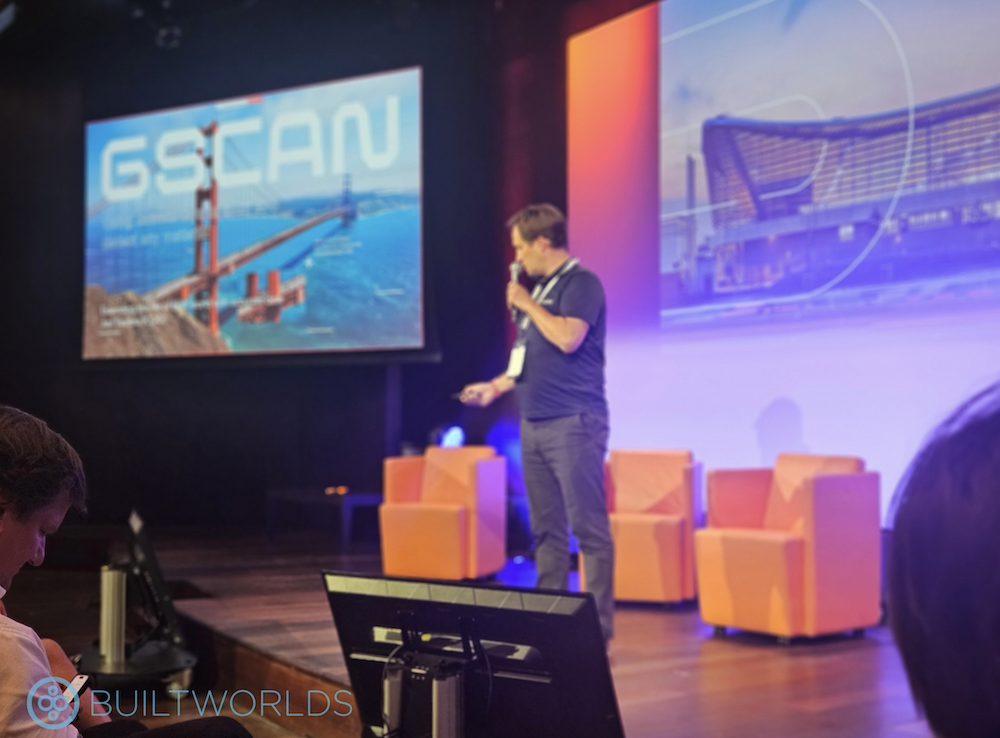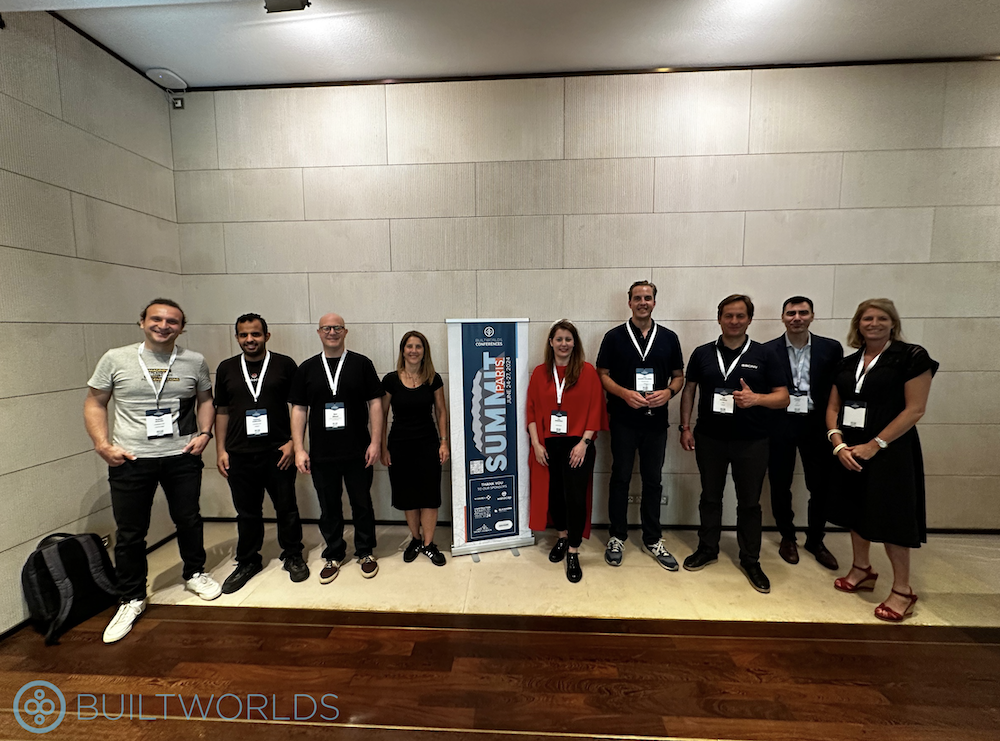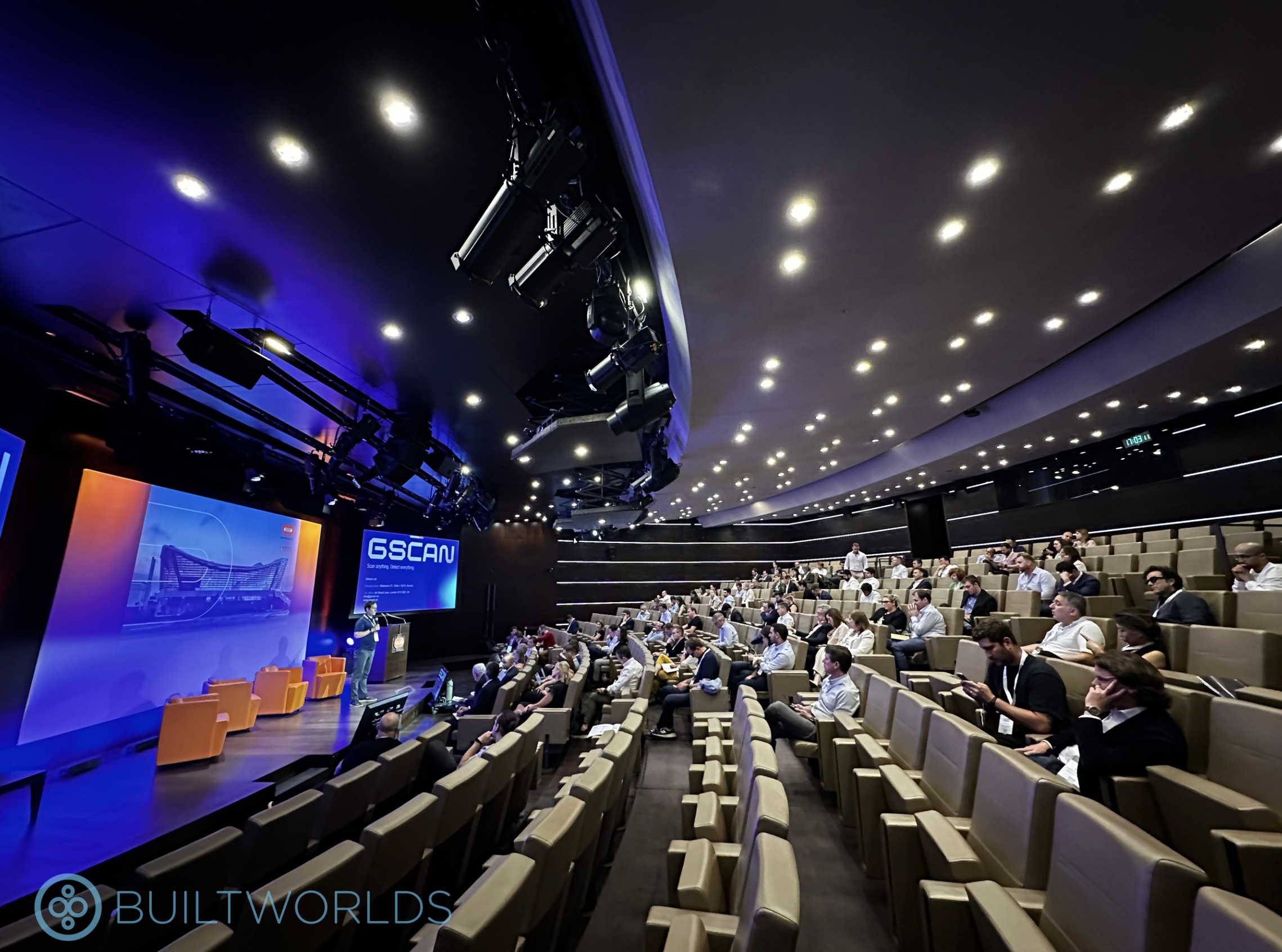Want to see the full recording?
BuiltWorlds members can access our video recording library filled with recorded analyst calls, panel sessions from past conferences, demo drops and more!

Demo Night at the 2024 Paris Summit saw 10 promising AEC industry startups take center stage to pitch their premise, explain their innovation, and field pointed questions from a panel of accomplished industry professionals. While competitive, one technology—a novel, more penetrating and informative means of 3D imaging that uses "cosmic rays"—stood apart: GScan.
Demo Night was hosted by Bouygues Construction and introduced by Edward Bouygues, eldest son of Martin Bouygues and heir apparent to the Bouygues Group. The competition, featuring technology from Alrik, Cassette, ConcR, DataForm Lab, ECODROP, GScan, Kontrad, LumenCache, PrīmX and WakeCap, was ultimately a showcase of creative problem solving, with an emphasis on ESG, offsite construction, advanced materials, practical applications of AI, and quicker, more accurate data collection and tracking.
Competitors made compelling pitches, some with props, and stood poised in responding to meticulous scrutiny. But it was GScan that ultimately impressed judges to the point of unanimous agreement.

“We are transforming how assets are being managed in the built world,” said GScan Chief Operating Officer Jüri Saarma in his opening remarks.
GScan is an AI-powered technology that relies on certain naturally occurring subatomic particles (ie, muons, electrons and positrons)—called simply "cosmic rays" by Saarma—to scan structures and materials (up to 20 meters thick), visualize them in 3D, and produce a chemical composition analysis, from which a wealth of information can be gleaned.
Saarma points to the problem of aging infrastructure to drive home the need for the solution GScan offers—which is certainly true in the US, where bridges are on average more than 40 years old and one in three needs replacing.
“We are capable of seeing inside structures and are able to detect two things: One, what’s the object; and the second, what’s the condition of the object,” said Saarma during his presentation. “We know where the rebar is, we know the voids, missing grouting, severity of corrosion, and also chlorides.”

Beyond the theory, Saarma presented GScan as a solution for which the market’s already shown an appetite.
“Our revenue (in 2023) was €1.5 million,” he said, “and we’ve delivered seven (paid) projects.”
GScan has staff of industry veterans and three patents, produces the hardware, software, and algorithms its technology requires, and, though based in Estonia, has been a global company since day one. And now it’s also a BuiltWorlds Demo Night Champion.
“Generally, we’re not putting high value on competitions (prioritizing customer traction), but this one is different,” Saarma said. “This recognition … is a powerful spring to propel GScan forward in our mission: extending the life of the built world safely, based on actual facts.”

Discussion
Be the first to leave a comment.
You must be a member of the BuiltWorlds community to join the discussion.